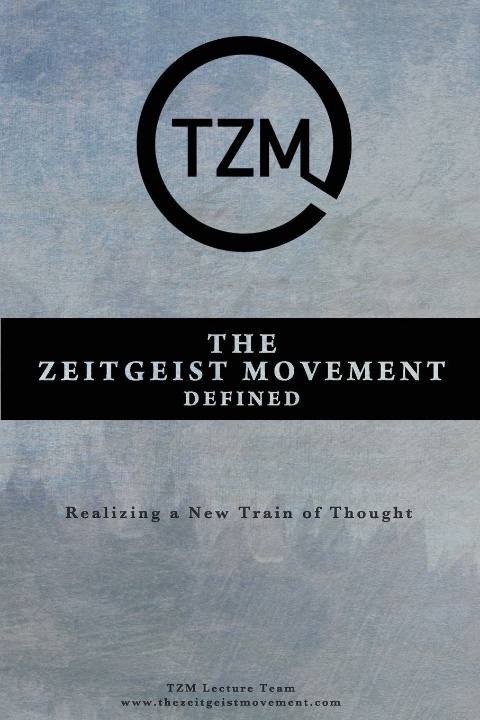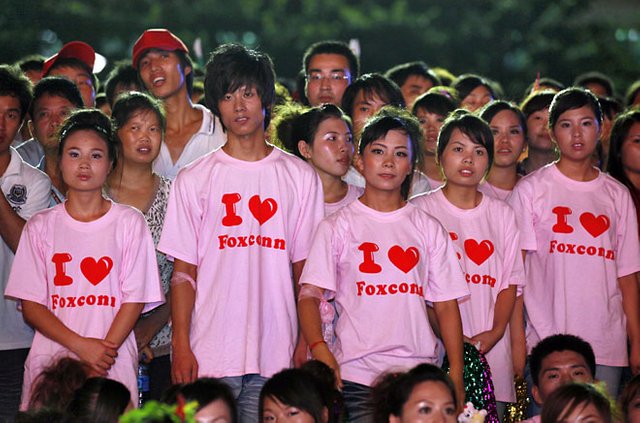
Money. Since I was a kid I had my issues in understanding why there seem to be so many problems with money. Before I dove deeper it always puzzled me to hear how there is supposedly so much wealth and progress today yet everybody seems to be at odds with this ominous money somehow - always chasing just enough funds to live a stress-free life - someday, hopefully.
And even the people considered to be 'rich' still seem to lose their sleep over all the money they do have.
Before I understood anything I had this gnawing feeling that the mechanism itself might be problematic somehow because it seemed to matter more than anything else when it came to decisions "adults" would make on a daily basis. Politicians are constantly complaining over not having enough budget to solve some important issues for society while the same governments invest millions - often billions - into things like the manufacturing hightech war-toys and selling them to questionable regimes without any regard for the consequences...
Something seems to be off here.
I am certain that most people in your life have had their share of experiences where lack of money became an issue. When so many customers keep complaining about a service or product there is probably something wrong with it - and when it comes to money itself, that something seemed overlooked and underinvestigated, trusting that "in the end this is all probably alright the way it is" despite the daily hardships.
But what if it isn't alright? What if money is not what most people assume it to be and there's much more to the story than we've been told?

Basics
Before we get into any proposals or overhaul-ideas we really have to get a strong foundation in our understanding about the problems that exist in our current economic structure and why they exist. We need to look at the basic mechanisms that drive our monetary system, as well as the resulting ramifications of its uncritical continued use for all life on Earth.
When I say "monetary system" I specifically refer to fiat money and central banks that issue state-warranted debt-based currency. An outlook on these ideas in reference to the rise of cryptocurrency will be given at the end of this series after the main tenets of The Zeitgeist Movement have been proposed, explored and explained.
I suspect most of you are more familiar with fiat money than the majority of society, naturally - we're on a cryptocurrency-backed blockchain. Nevertheless many arguments here might be new to you and these mechanisms are still highly relevant today because the system around us has not yet caught up to the blockchain revolution, and the old rules matter greatly until we have found a better way to structure our economic system.

So, what is money?
One of the mainstream definitions can be found at wikipedia.com and reads:
Money is any item or verifiable record that is generally accepted as payment for goods and services and repayment of debts in a particular country or socio-economic context. The main functions of money are distinguished as: a medium of exchange; a unit of account; a store of value; and, sometimes, a standard of deferred payment. Any item or verifiable record that fulfills these functions can be considered as money.
We can use money as placeholder for value and as convenient medium of exchange. Through money we can store wealth over time. When we buy or sell we ensure the functioning of our economy and society by perpetuating the spending cycle and by transferring our money to somebody else in exchange for a product or service.

Some buy so others can sell - and the whole structure keeps on working like clockwork.
Or so we are told.
On the surface it all sounds peachy, however there are some glaring issues with this framework the way it's been set up. So what viewpoint does the Zeitgeist Movement's train of thought offer when it comes to money and our economy the way it is structured?

In contrast to many official notions about our monetary system there are inherent problems built into the structure we call "the economy".
So let's think about this on a basic level.
What essential parameters and requirements does the monetary system have to ensure its continued operation?

Competition as prerequisite
In a market-society everyone is your competitor by default, unless otherwise agreed. Sellers compete amongst each other to sell their products to customers. Buyers compete for job positions - or rather, for income.
This competition mentality in our culture has far-reaching consequences for our mindset at large. We are taught competition from an early age as one of those unchangeable things in life - "Life is hard and it's a dog-eat-dog world out there so you better toughen up to be able to come out as a winner".
For now let's just say that competition as basis for an economic structure can and should be questioned as such. There is a good case to be made that competitive approaches are never as effective in achieving mutual success as cooperative approaches are.
We will get into much more detail on the effects of societal competition vs. societal cooperation in later parts of this series. No matter how we look at it, competition is a neccessity within our economic structure today and a mechanism every participant in the economy has to go along with in one way or another if he wants to succeed.

Profit as prime objective
In a debt-based monetary system, profit is the aim and engine for any sort of economic activity. If one does not make a profit, one is making a deficit because of his need to keep up with inflation, increasing interest payments rising taxes, etc. These pressures will eventually threaten his economic status or his ability to support himself if more profit is not generated...
The importance of the profit motive for our current economic structure cannot be overstated.
While many activists declare companies to be "evil" that are actively pursuing the greatest profit margins at the expense of everyone else, we could also look at it differently: Maybe it's not so much a choice of ill-intent on the company's part but the economic structure itself that directly leads to this sort of "evil" behavior. By default.
When it comes to survival, morals often go out the window. And why wouldn't they?
In a profit-driven economic system there is ample reason for all participants to always strive for more, hoping to escape a potential future of poverty and ruin - because the more you have, the "more likely it is that your future will be secure". And if you take a loss through my behavior - well I'm sorry but my family needs the money and "I don't know you".
Having no money, failing with a business-venture or losing your job is a constant possibility, threatening the apparent stability of someone's occupational position - and consequently, scarcity always lurks around the corner for all of us. Nobody wants to get the short end of the stick tomorrow, so we try our best to shield ourselves from that possibility - by trying to earn more and ensuring the continuation of our streams of income. Even when the job can be considered slavery for all intents and purposes.

The system aims for scarcity
In a monetary system, scarcity is the king and ruler. It reigns by default and everybody who wants to succeed in the open market will have to make sure that his product is something rare or special. Scarcity drives value in a supply and demand structure - the more there is of something, the less valuable it is.
Which sounds all great on paper, right?
Here is an analogy that has helped me greatly in understanding what that actually means:

Let's say you can buy an apple for 50 cent in a store. But there is another store opening, wanting to compete for customers, so apples at the second store might be priced a little cheaper - say 48 cent - to get the customers to buy there instead.
This "race to the bottom" gets tougher the more competitors there are, as more companies are trying to undercut each other's offers to hopefully make the sale.
Regular rules of the market - supply and demand. So far, so good.
As more stores offer apples the price will come down because apples are now less scarce and more abundant than before. So the scarcer apples are, the more profit can be made from selling them for a higher price.
An even more extreme example would be the life-saving glass of water in the desert, with a price tag of 50 Bitcoin. Now, granted that is a load of money today... but if you want to survive and there are no other offers of water nearby you might be tempted to pay that ridiculous price anyway, just to survive. Even if it "hurts" psychologically - the effects of scarcity are so threatening that the price of not paying 50 BTC would be undoubtedly higher.
Scarcity drives profit!
So when we...
wait, what?!
Scarcity drives profit?
Isn't that kind of... questionable?
Actually it is, but it's super taboo to say so, especially in America and Western Europe. Think about that for a second and what it implies when scarcity is desireable because it drives profit... hmmm...

The problem with this mechanism is that scarcity will always pay off in financial terms for the one who is offering. Scarcity is a most desired target for sellers and manufacturers to aim for, regardless whether we are talking about offering luxury cars or the bare necessities of life. By default, aiming for scarcity becomes the economic strategy for anyone offering to sell anything in the system.
Through this aim, the financial gain of a few company owners making a scarcity-driven supply decision can easily turn into massive damage for the rest of society because of the negative effects that scarcity has on our physical and mental health.
Remember, profit is scarcity is lack.
And if you have ever experienced lack you might see how a society founded on that... would be kind of a bad idea if our goal is achieving societal health and building a strong positive community.

If we go back to the apple example, the issue with scarcity becomes plainly visible.
Do you think either of the stores could sell apples for about 50 cent if there were 20 new super markets opening up? What do you think would happen to the price? Right, it would have to go down as more apples are available for the same amount of customers.
BUT, can you also see that it would be really bad for business if some random people decided to plant apple trees everywhere? If you could walk outside and pick apples arbitrarily - why would anyone pay half a dollar in a store?
They wouldn't.
Apples at that point would no longer be scarce so there would be no point in paying for them voluntarily, not to mention saving the hassle of grocery shopping ;)

If you think this through a little further you will surely see the problem here: Abundance isn't merely "undesired" by the scarcity-driven profit structure... Abundance is outright feared and fought - it is the enemy of profit.
Let me say that again: Abundance is the enemy of profit.
Let that sink in for a moment and tell me it's bullshit. I would really like to hear that case being made ;)
If you want to sell something you better make sure there isn't a whole lot of it available already, or your price would have to come down too much for you to make a profit.
Consequently, wherever you as a seller can find "lack" of a commodity, you can position your product to make a profit. A great example of this would be the rise of bottled water, being sold at high prices in areas where tap water quality is terrible.
Through this example we can also see that companies who sell bottled water have no logical interest in tap water staying clean. Quite the contrary. In a perfect world for Nestle and Coca Cola, every source of water would be polluted, except the ones they use to fill their bottles before selling them to us.
In such a dystopic scenario it would mean that scarcity goes up so that they can sell their product at even higher prices. The company would also have ample motive to buy up remaining water springs that are still clean, and to even pollute or drain other sources of water deliberately that are still available to society at large.

These companies naturally want water scarce. Nevermind the fact that every organism needs water to survive, and that in a sane world these essential resources could not just be 'claimed' by a private company to then be sold back to the public for profits.
But in our so-called "economy" these developments are outright normal and to be expected.
Remember, scarcity = profit.
Mandatory cyclical consumption
We already established that money needs to keep travelling from hand to hand to keep the system going. The monetary cycle needs to be perpetuated at all times. If companies don't sell anything, their workers cannot be paid and - in turn - won't have any funds to purchase goods or services themselves.
If somebody is gonna buy, somebody else will have to pay wages so that the spending cycle can continue. Which also means that any job in existence has a tendency to want to stay in existence because many people depend on it, not just the employee.

Again, on paper that sounds swell. But, what does it actually mean?
It means that people have to continuously consume things regardless of necessity. To prevent the economy from crashing something will always have to be bought and sold, regardless of what it is. Consumerism is not a side effect of this system - it is a prerequisite.
If everybody were just happy with what they had, if people stopped using credit cards to "purchase" things they had little use for, and if people started producing things they needed by themselves such as food, clothing and shelter... the system structure would fold in on itself thanks to the dying demand for most advertised products that make up the tangible economy today.
Marketing
There are other consequences of the necessity for cyclical consumption.
For one, companies have to continuously sell stuff regardless of how useful it is. When there is no demand for something companies can't just let it be, they NEED their income in a scarcity-environment to keep operating. And a nonexistent market-niche has no competitors yet - a "golden opportunity" as some might say.
So corporations hire a ton of sociologists and marketing experts to do polls and customer interviews, trying to manufacture new demands for people from scratch, to find out what customers think they want and to ultimately dream up new desires for people to adopt - so that new products can be sold to them eventually.
The problem with this development is that humanity is being drowned in advertisements today, most of which praise products that have not existed only a few decades back. Advertisements have a strong impact on shaping our subconscious mind, especially for children. Try to imagine Times Square without advertisements - I'm sure it will not be easy but damn would it be chill!

Through this mass propagation of artificial products, the connection to our actual needs is slowly eroded over time while our thoughts are being filled with unreasonable desires we are supposed to chase after for no good reason.
There are products today that would totally blow your grandma's mind!
Endless waste
Cyclical consumption has more hazardous side effects. The amounts of waste produced in such a system structure are immense! If we break it down we see that waste is an outgrowth of inefficiency.
For starters we may look at the endless piles of plastic bags, wrappings and packaging materials that are produced continuously often just to transport a single food item or a small serving halfway around the world.
Can you imagine how many companies exist solely because we're wrapping everything in plastic?
Think of all the resource gathering, manufacturing, shipping and distributing involved with just the packaging industry alone. You need oil, you need colors, you need materials. You need engineers to look after the machines in the factory. You need people buying the raw resources and people selling your final products. It's literally unimaginable how many people's livelihoods depend on the continued existence of just this industry alone, and all its sub-industries - regardless of the effects the industry has on our environment.

What about fuel and energy? Well, there are a myriad of ways to produce large amounts of power today using innovations in energy research of the last decades (what has been branded "renewable energy" by people we don't know). The efficiency of these energy alternatives is constantly going up, but here we are in 2018 still burning fossil fuels to drive our cars.
That technology has been in use for more than 100 years... We are constantly being told how advanced science is, how we are at the cusp of development and understanding - yet we still drive around with these ancient vehicles curiously dependent on the same cartel-controlled fuel like a century ago.
You really think using gasoline is the best scientifically available solution to propulsion in 2018?
And before you go into the comments and tell me how I have disregarded the recent rise of the electric vehicle - there is more to the story. Electric cars have existed since BEFORE fossil fuel driven cars, and could have been available to everyone and improved upon for over a century. In my view "Tesla Motors" is the public pacifier for a long-prevented and delayed development in the automotive industry at large. A "controlled release", so that the societal shift to electric cars may be steered into a desired direction for the industry in the long term.

While we're at Tesla...
I'm sure you are familiar with the legend around Nikola Tesla, building his Wardenclyff Tower to supply the world with infinite amounts of energy. As the legend goes, the main investor JP Morgan pulled out his capital at the last minute, ensuring the project's sudden halt and cancellation when he realized that infinite amounts of tappable power available to the whole world population would quickly end the need to keep buying traditional fuels from the corporate giants.
As Morgan allegedly put it: "If anyone can draw on the power, where do we put the meter?"
A natural question if your profit depends entirely on your product remaining scarce.
The endless waste of cyclical consumption is guaranteed to be upheld in this system not because corporations are evil and want to destroy the world... but because a profit can be made from serving that extra need of the market - the need that constantly wants to be filled through an inefficient (and therefore profitable) patchwork-service.
The need came into existence when an inefficient choice was made for the future, affecting everyone in society - like scratching the electric car in favor of fossil fueled engines, or prohibiting the avenues of using biodegradable packaging made from hemp instead of crude oil plastics. A solvable problem was left unsolved deliberately because a cartel saw that their profits from oil would vanish if noone needed or wanted their products any longer.
And why would a profit-driven company voluntarily give up their livelihood for some noble but highly expensive cause? Can we really expect them to do so in a structure that depends on there being constant unsolved issues to milk the market further? I think we can't.
To put it in simple terms: A choice was made to drive scarcity and prevent abundance for as long as possible - and we are forced to adhere to that decision because alternatives are stifled and made inaccessible to most people on the "open" markets.
On the other hand, we can witness how production-abundance can dramatically impact the lives of producers in the monetary system in a negative way because of falling prices.
Whether it is the intentional burning of diamonds to keep their price on international markets low, or the deliberate dumping of thousands of gallons of milk by farmers complaining about the "dangerously cheap prices" of milk that "threaten their economic existence" due to some new EU guideline resulting in overproduction - the pathological (but understandable) need to keep availability of anything to a minimum and thus ensure profitability comes in all sorts of grotesk manifestations.
If we want to build a world where everyone has access to the necessities of life, where people's prime task would be to find out what their passion is and how to share it with society in a meaningful way to elevate the whole of the human community... we have to realize how counterproductive it is to hold fast to an economic dictate that makes abundance outright impossible to achieve and financially undesireable.
I leave you with the mighty Captain Picard from "Star Trek", explaining to a time traveller from the past why humanity has eventually moved on from the monetary system. It is a nice outlook on where this series is going.
I would be thrilled to take you along for a deeper dive into the system structure from TZM's viewpoint, in the next part of this series.
Until then, I greatly welcome your comments with what's on your mind. I am considering doing a FAQ at the end of this series, posing and answering the most commonly asked questions and concerns by people new to TZM material. If your comment is emotional, that's ok as well - I have had tense discussions over this for years.
I find, people who have gone by the rules of the market uncritically for most of their lives tend to get really upset when the system is presented from such a critical perspective - but it needs to be talked about. And I would love to change my mind if anyone were able to offer a decent counter argument when the series is up.
We will continue in part 2.
There is much more.
unsplash.com
unsplash.com
unsplash.com
unsplash.com
unsplash.com
unsplash.com
unsplash.com
unsplash.com
unsplash.com
unsplash.com
unsplash.com
unsplash.com
unsplash.com
Zeitgeist: Addendum
unsplash.com
unsplash.com
Thanks for stopping by <3
Hey @paradigmprosepect. Really nice piece. Your writing and explanations are beautifully clarify and concise. While I am well aware of the issues here and the Zeitgeist Movement in general, it's great to find it so clearly set out. This comment is partly so I can reblog the link later as I feel disseminating this information is really important. I would resteem but it's to old 😒. I really look forward to reading the second part in a bit.
Downvoting a post can decrease pending rewards and make it less visible. Common reasons:
Submit
Oh and it's great to see Zeitgeist on Steen, though I shouldn't be so surprised.
Downvoting a post can decrease pending rewards and make it less visible. Common reasons:
Submit
thank you for your feedback <3
Agreed, I am always happy to meet zm people still, even though I quit the movement a few years ago because it didn't go quite far enough anymore - which I will get to eventually <3
In all likelihood this will become a 7 parter or so, so there will be ample opportunity to resteem ;)
Second part is out:
https://steemit.com/monetary-system/@paradigmprospect/what-i-learned-in-the-zeitgeist-movement-or-part-2-waste-profit
Really happy to meet ya,
followed
Downvoting a post can decrease pending rewards and make it less visible. Common reasons:
Submit